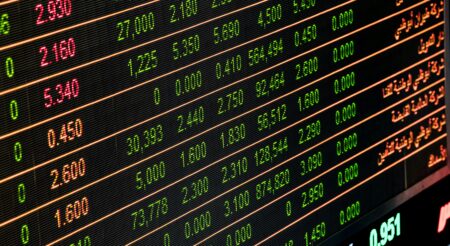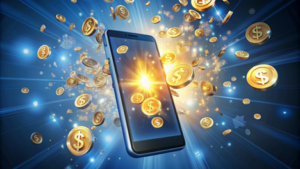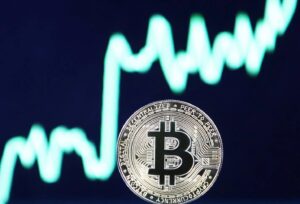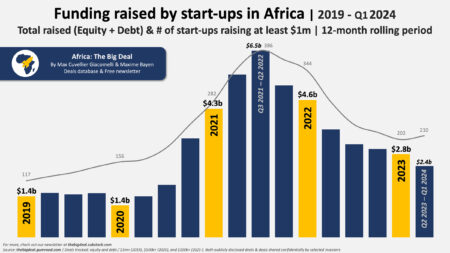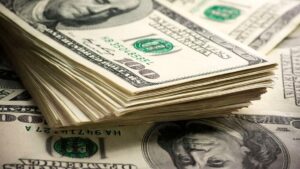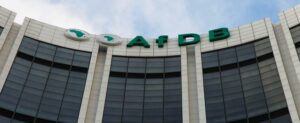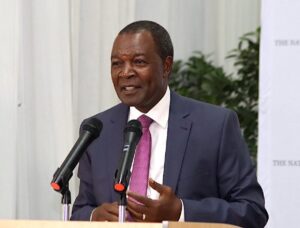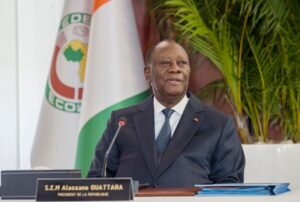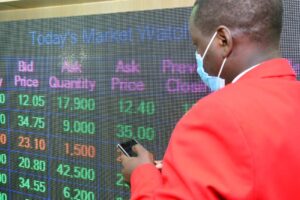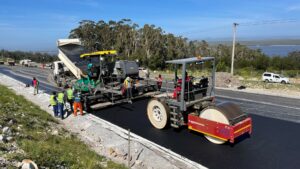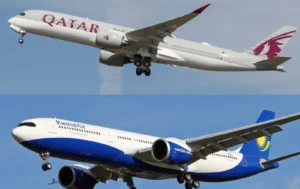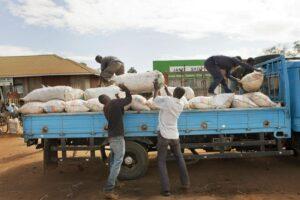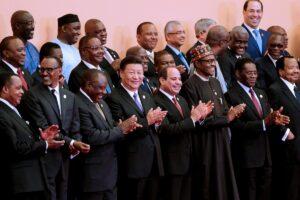- Africa’s new dawn: the rising role of digital and AI in agriculture
- Can Dangote Refinery Transform Africa Energy Ambition
- Gallup Survey: 80 per cent of Kenyan Workers Are Disengaged and Seek New Opportunities
- Madagascar Man Freed from 5KG Tumor After 15-Year Struggle
- How women in Africa are perceived and treated
- Sugar consumption in Kenya to Increase to 1.23 Million Tonnes
- Can Somalia and Turkey Oil deal Bring Change in Somaliland
- Remittances to Kenya dropped to $371.6 million in June, marking a six month low
Money Deals
- Within the financial history of Africa, the last 10 years have witnessed a notable surge in the acceptance of Forex CFD trading.
- Technological advancements have become the unsung stars of the Forex CFD trading story in Africa.
- If you wish to get started with Forex CFD trading in Africa – you need a trusted broker with a reputable trading app.
Within the huge financial spectacle, Forex CFD trading is a gripping protagonist that draws traders into its complicated storylines of profit and risk, all set against the dramatic backdrop of a Shakespearean tragedy. With 2024 drawing to a close, it is wise for us to examine critically the story of Forex CFD trading in Africa. Like a rollercoaster journey over the wild landscape of the stock market, each turn offers a unique combination of opportunity and difficulty.
The Rise of Forex CFD Trading in Africa
Within the financial history …
Thanks to virtual dollar cards, residents of African countries find it significantly easier to conduct online transactions on popular digital services and shop on international platforms.
In our article, we explore the top 5 virtual cards on the continent. All of them are characterized by seamless online transactions and enhanced security features. They are easy to use and simple to obtain.
1. PSTNET
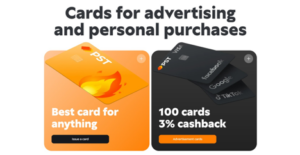
FinTech service PSTNET introduces virtual cards compatible with Visa and Mastercard, offering unrestricted global usage. These cards are versatile, catering to various needs. Specialized cards are available, such as those for managing payments for Facebook Ads or Google Ads.
We will focus on the service’s most popular card – Ultima.
Ultima is a 3D Secure virtual dollar card, ensuring all transactions are securely protected. It can be used for payments on platforms like PayPal, Steam, Spotify, Netflix, Patreon, Unity 3D, and app stores such as Google …
- A key component of successful cryptocurrency investment is utilizing cryptocurrency exchanges effectively.
- The USDT/SOL exchange pair refers to the trading of Tether (USDT) against Solana (SOL) on a cryptocurrency exchange.
- Solana, on the other hand, is a blockchain platform designed for decentralized applications and crypto-native projects.
Cryptocurrency investments have gained significant popularity in recent years, providing individuals with opportunities to grow their capital in the digital asset space. One of the key components of successful cryptocurrency investment is utilizing cryptocurrency exchanges effectively. In this blog, we will explore the concept of using exchanges to grow your capital, with a specific focus on the USDT/SOL exchange pair.
What is the USDT/SOL exchange pair?
The USDT/SOL exchange pair refers to the trading of Tether (USDT) against Solana (SOL) on a cryptocurrency exchange. Tether is a stablecoin pegged to the value of the US dollar, providing investors with a stable and reliable cryptocurrency …
- The AfDB’s mandate for a three-year social bond was announced on Wednesday, 17th January 2024.
- This issuance is a significant highlight amid a dynamic week in the USD SSA markets, witnessing the launch of eight benchmarks totaling US$17.25 billion within a span of two days.
- This new three-year Social Benchmark is the Bank’s first global benchmark of the year.
The African Development Bank has issued its first ever three-year social bond targeting to raise US$2 billion under its recently established Sustainable Bond Framework, which was launched in September 2023.
Set to mature on February 25, 2027, the Sustainable Bond Program seamlessly integrates and strengthens the African Development Bank’s existing Green and Social Bond initiatives, streamlining the issuance of green bonds, social bonds, and sustainability bonds.
This new three-year Social Benchmark is the Bank’s first global benchmark of the year, strategically aligning with the robust reopening of primary markets in January …
- Kenya’s debt repayment in 2023 was majorly from the Consolidated Fund.
- The country has faced liquidity challenges due to uncertainty in accessing funding from global financial markets.
- Analysts, however, maintain that the practice of taking on debt to pay debt is unsustainable.
The National Treasury has revealed that Kenya’s debt repayment surged to $3.69 billion (KSh600.73 billion) by December 2023. Despite an increase in revenue collection, Kenyans found little reason to rejoice as debt consumed 57 per cent of the government’s tax revenues, amounting to $6.14 billion (about KSh1.05 trillion).
Only 43 per cent of the generated revenue remained for development, salaries, and the state’s recurrent expenditure such as paying salaries.
The disclosure, titled “Kenya’s statement of actual revenues & net exchequer issues as of 31st Dec 2023,” signals a need for Kenyans to tighten their belts this year. President William Ruto’s administration anticipates higher repayments due to the devaluation …
- Experts project that Côte d’Ivoire seeks to sell its Eurobond and around 8.50 per cent to 8.75 per cent for a ticket size of between US$1 billion to US$1.25 billion.
- Ghana, Senegal, Nigeria, and Côte d’Ivoire have been key players, with the values of their Eurobond issuances typically ranging from $200 million to $1 billion.
- The annual value of Eurobonds issued by West African governments witnessed a remarkable surge, increasing from $200 million in 2007 to $2.25 billion in 2014.
As the markets open in the new year, all eyes turn to Côte d’Ivoire, which has announced a plan to lead the continent in issuing a Eurobond—the first in Africa after a nearly two-year break.
Positioned on the verge of economic resurgence in 2024, Côte d’Ivoire is poised to become the first sub-Saharan African nation to issue a Eurobond as the global financial markets ease following a period of high …
- Rising volatility in Kenya’s Fixed Income Market derives from a combination of global and domestic factors.
- The yield curve soared fastest at the head and upper belly of the curve, rising by a cumulative 661bps on the three-month treasury bill.
- There is hope as it is anticipated, that a rebound in trading activity will happen in 2024.
The Kenyan Fixed Income Market displayed remarkable flexibility last year to experience one of the most rapid annual increases in yields resulting in a notable inversion of the effective yield curve.
According to financial experts, the rising volatility in the fixed income space derives from a combination of global and domestic factors.
On the external front, the rapid monetary policy tightening in 2022 and 2023 led investors to price-in bearish capital gain expectations for bonds.
On the domestic front, the rising concerns around fiscal sustainability indicators, coupled with an elevated inflationary regime in …
- International Finance Corporation targets specific projects in Côte d’Ivoire, Egypt, Kenya, Morocco, Senegal, and South Africa.
- IFC’s $30 million (Sh4.8 billion), own-account investment will help Africa Infrastructure Investment Fund 4 Partnership (AIIF4) exceed its final close target of $500 million (Sh80.4 billion).
- A pan-African infrastructure private equity firm called the Africa50 Infrastructure Acceleration firm I is raising up to $500 million for investments
Kenya is among six African countries that International Finance Corporation (IFC) will pump $30 million (about KSh4.8 billion) equity investment to fund works on essential infrastructure.
The fund, managed by Africa Infrastructure Investment Managers (AIIM), part of the Old Mutual Group, will support projects in the telecoms, renewable energy, and transport sectors across Africa but with a specific focus on Côte d’Ivoire, Egypt, Kenya, Morocco, Senegal, and South Africa.
In the telecoms sector, the fund will focus on financing data centers, fiber networks, and communications towers. In …
- The IMF’s support fund refers to the designated Special Drawing Right (SDR), which serves as an international reserve asset to supplement the official reserves of its member nations.
- It represents a potential claim on the members’ freely usable currencies, primarily intended to provide liquidity to a nation in the event of an economic crisis.
- As of September, Kenya’s SDR quota at the IMF stood at US$542.8 million, equivalent to KSh91.8 billion.
Leaders from developing countries continue to pursue the implementation of the proposed re-channeling of the IMF’s support fund through development banks, aiming for affordability and increased impact scale.
This was evident on the sidelines of the recent COP28 summit, where African leaders emphasized the acceleration of the process towards realizing the proposal. The summit took place between November 30 and December 12 last year in Dubai.
Proposal: IMF’s support fund to come through AfDB
African Development Bank (AfDB) Group …





